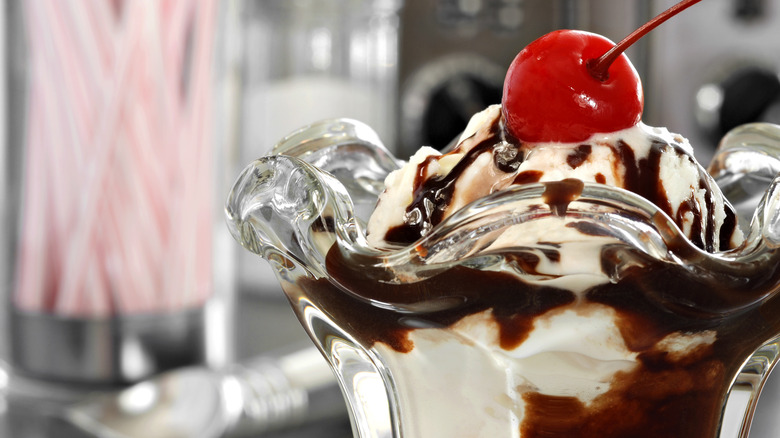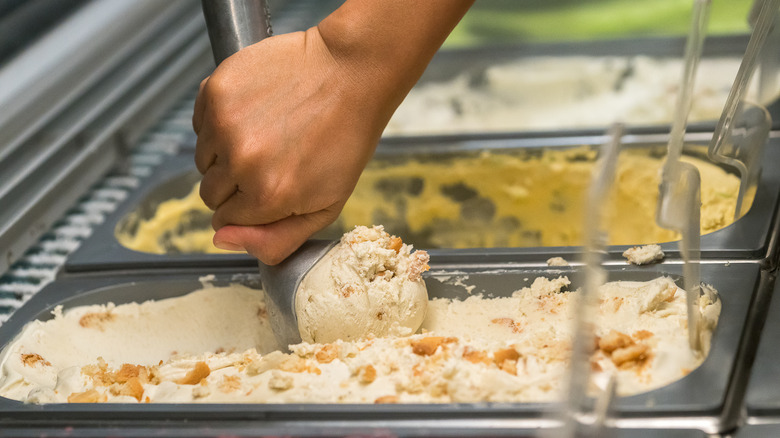The Reason American Ice Cream Parlors Used To Have A Bad Reputation
The ice cream parlor has always seemed to radiate a warm, family-friendly image. Older Americans may remember the ice cream shop as a place where they used to share a root beer float with their high school sweetheart while doo-wop played on the jukebox. Younger Americans may associate ice cream parlors with a place they went as a reward for good grades or simply to spend time with family. No matter what age you are, it's safe to say that you've always enjoyed a scoop of ice cream. After all, we made July National Ice Cream Month back in 1984 (via National Today), and every state from Maine to California boasts at least one famous ice cream shop.
What you may not know, however, is that these locales of frozen dairy delight weren't always seen as wholesome. At one time, ice cream parlors were viewed as places where scoops of ice cream could be served alongside stone-cold vice. At least, that's what certain citizens believed back in the late 19th century, according to Mental Floss. Is there any truth to these recounts of sin, or do these claims melt away like ice cream on a hot summer day?
Ice cream houses were associated with prostitution and vice
According to Mental Floss, the ice cream parlors of the late 19th century up through the early 20th century were regarded as places of sin. While this may seem like something cooked up by the infamous reformer Anthony Comstock, whose anti-vice brigade attacked everything from birth control to books, it would seem that many Americans viewed these sweet shops in unfavorable terms. In 1895, one man claimed several New York ice cream parlors were facades for brothels and prostitution rings. Chicago reformers attacked ice cream parlors as immoral, alongside motion pictures, picnics, and "hasty weddings" (via Chicago Public Library). A 1909 book, "War on the White Slave Trade," slammed foreign-owned ice cream parlors as recruitment stations for prostitutes.
What exactly caused such paranoia about ice cream? Mental Floss reports that historians believe that ice cream was associated with foreign influence during those times, and since immigrants often owned ice cream parlors or saloons, this caused some cultural panic about "white slavery," an outdated term for prostitution or sex trafficking. Biased fears about arriving immigrants, alongside changing social statuses for women in the 19th century, lead to the unfortunate belief that these immigrants would lure women into their ice cream shops and sell them into sexual slavery. Fortunately, the ice cream business at the time was too big to be hurt by such fears, and today, people of all backgrounds enjoy visiting their neighborhood ice cream parlors.

